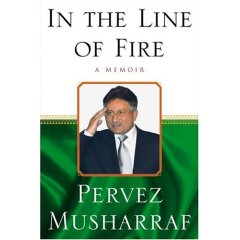In the Line of Fire: A Memoir
If there is a single consistent theme in Pervez Musharraf’s memoir, it is the familiar military dogma that Pakistan has fared better under its generals than under its politicians. The first batch of generals were the offspring of the departing colonial power. They had been taught to obey orders, respect the command structure of the army whatever the cost and uphold the traditions of the British Indian Army. The bureaucrats who ran Pakistan in its early days were the product of imperial selection procedures designed to turn out incorruptible civil servants wearing a mask of objectivity. The military chain of command is still respected, but the civil service now consists largely of ruthlessly corrupt time-servers. Once its members were loyal to the imperial state: today they cater to the needs of the army.
Pakistan’s first uniformed ruler, General Ayub Khan, a Sandhurst-trained colonial officer, seized power in October 1958 with strong encouragement from both Washington and London. They were fearful that the projected first general election might produce a coalition that would take Pakistan out of security pacts like Seato and towards a non-aligned foreign policy. Ayub banned all political parties, took over opposition newspapers and told the first meeting of his cabinet: ‘As far as you are concerned there is only one embassy that matters in this country: the American Embassy.’ In a radio broadcast to the nation he informed his bewildered ‘fellow countrymen’ that ‘we must understand that democracy cannot work in a hot climate. To have democracy we must have a cold climate like Britain.’[read more...]

No comments:
Post a Comment